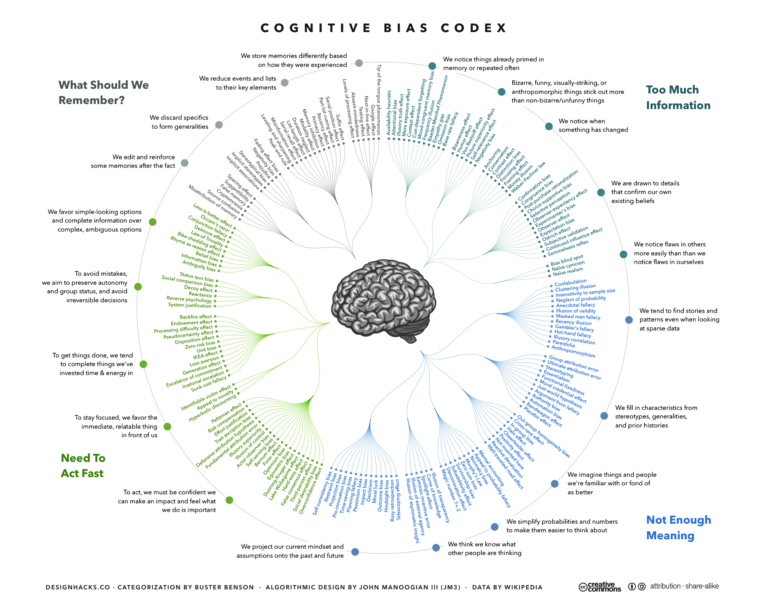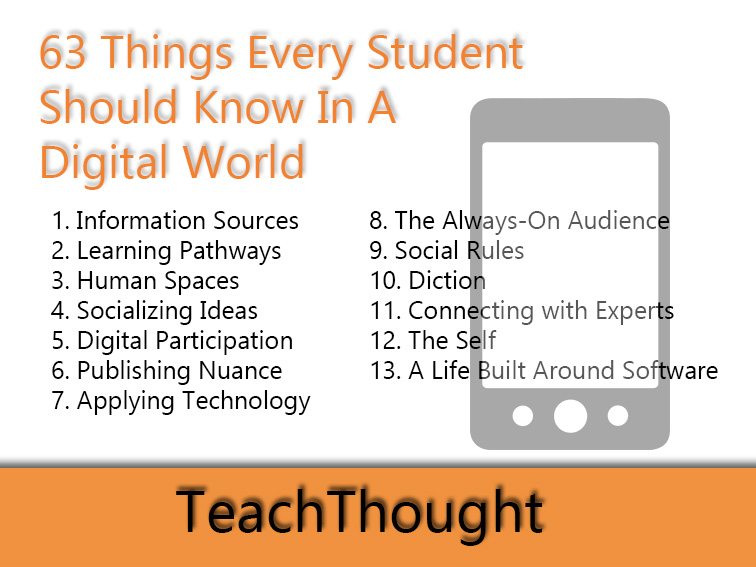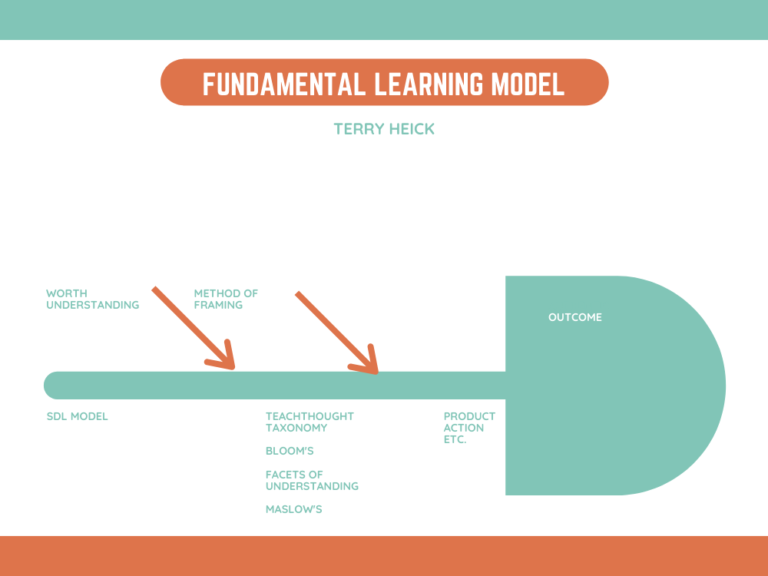Similar Posts

Cognitive Biases
A cognitive bias is an inherent thinking ‘blind spot’ that reduces thinking accuracy and results inaccurate–and often irrational–conclusions.
50 Activities To Promote Digital Media Literacy In Students
50 Activities To Promote Digital Media Literacy In Students Infer the author’s purpose. Distinguish between primary and secondary audiences. Summarize the media by identifying its 3-5 most important ideas or events. Identify and diagram the literary elements (e.g., setting, characters, conflict, etc.) Identify and analyze characters as major or minor; flat or round; static or…

63 Things Every Student Should Know In A Digital World
It could be argued—and probably argued well—that what a student fundamentally needs to know today isn’t much different than what Tom Sawyer or Joan of Arc or Alexander the Great needed to know. Communication. Resourcefulness. Creativity. Persistence. How true this turns out to be depends on how macro you want to get. If we want…

TeachThought Fundamental Learning Model
Choose Topic Worth Knowing Choose Method Of Framing Choose Specific Outcome
32 Habits That Make Thinkers
32 Habits That Make Thinkers 1. Doesn’t always seek to please others 2. Is a charismatic listener 3. Can learn from anything 4. Asks “Why?” almost annoyingly 5. Is comfortable with uncertainty 6. Writes for their own understanding, not performance 7. Values questions over answers 8. Thinks laterally, endlessly connecting this to that, here to…
